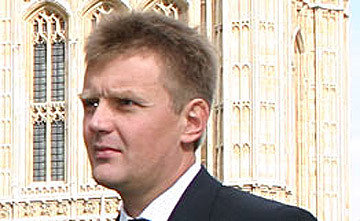LONDON, February 27 - RAPSI. The disclosure of the information in the inquest into former KGB officer Alexander Litvinenko's death will partially be held behind closed doors according to government's request, High Court Judge Robert Owen said on Wednesday.
The judge will also have the right to close the hearings if he considers the disclosure of the information a threat to public interest. However, the process will remain transparent, he said.
The decision to hold the case behind closed doors was made after the government sent a request signed by Secretary of State for Foreign and Commonwealth Affairs William Hague to the court in an effort to prevent the disclosure of documents in the case of Litvinenko's death due to a "serious threat to public interests."
Other trial participants have contested the decision, claiming that the government did not provide information in this regard and is not allowing them to comment on the matter.
The issue of how the information in the case will be published will be considered separately, which could seriously slow the process.
Earlier, the judge said the substantive inquiry hearing will not begin on May 1.
Meanwhile, the issues of witness anonymity and the schedule of the inquiry will be considered at a meeting on March 14.
Litvinenko, who fled to the UK in 2000, died on November 23, 2006 at the age of 44 shortly after having tea with his former colleagues Andrei Lugovoy and Dmitry Kovtun at London's Millennium Hotel. Doctors said they had found polonium-210 in his body. The cause of death established after his autopsy has not been published.
The case led to a serious deterioration in UK-Russian relations after Russia refused to extradite Lugovoy, who was charged in Britain with Litvinenko's murder.
According to later reports, the UK authorities requested Kovtun's extradition on the same charges.
The interested parties to the inquest include Litvinenko's wife Marina, exiled Russian oligarch Boris Berezovsky, who was Litvinenko's close friend and sponsor, Andrei Lugovoy, the main suspect in the case of Litvinenko's murder in the UK, the Metropolitan Police Service, the Crown Prosecution Service, and the UK government.



